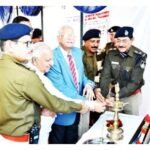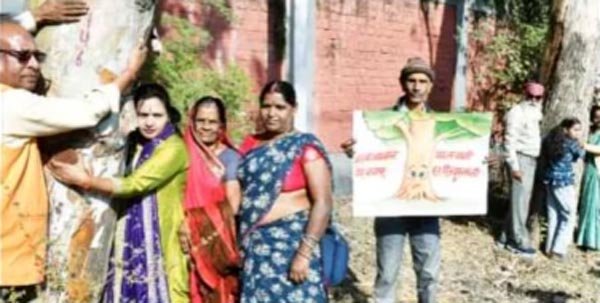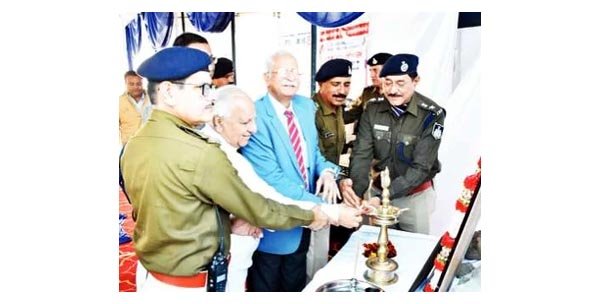New Delhi, Sep 4 (UNI) It is all due to the Indian Constitution and Dr B R Ambedkar’s vision that he could hold this august office and get an opportunity to serve the nation and the society, Chief Justice of India B.R.Gavai said while delivering the 11th Dr. L.M. Singhvi Memorial Lecture in New Delhi.
Speaking on the theme “Human Dignity as the Soul of the Constitution: Judicial Reflections in the 21st Century,” the CJI reflected on the enduring relevance of dignity as a constitutional value and traced its evolution in Indian jurisprudence.
He recalled that though he never met Dr. L.M. Singhvi personally, he felt a deep connection through his father’s association with Singhvi and Fali Nariman in the Rajya Sabha.
Paying tribute to Singhvi’s legacy as a jurist, diplomat, parliamentarian and scholar, the CJI highlighted his contributions to Pravasi Bharatiya Divas and constitutional recognition of Panchayati Raj Institutions.
Emphasizing that human dignity lies at the heart of India’s constitutional ethos, CJI Gavai traced key judicial milestones, from Sunil Batra and Francis Coralie Mullin to Puttaswamy (2017), Common Cause (2018), and Sukanya Shanta (2024), to show how the Supreme Court has consistently expanded the scope of Article 21 to safeguard dignity, autonomy and equality.
He said that dignity is not only an individual right but also a collective value essential for democracy and social harmony. “When the dignity of every citizen is recognized and protected, it promotes mutual respect, belonging and solidarity, which are essential for national unity,” he noted.
CJI, emphasizing that “Human Dignity as the Soul of the Constitution: Judicial Reflections in the 21st Century” is not just a theme but an enduring invitation to reflect on one of the deepest principles of constitutional law.
The CJI lauded Dr. Singhvi’s seminal contributions, including his role in conceptualizing Pravasi Bharatiya Divas to strengthen engagement with the Indian diaspora, and his pivotal work as Chair of the Committee on Panchayati Raj Institutions which paved the way for constitutional recognition of grassroots self-governance.
“The statue of Mahatma Gandhi gifted by Dr. Singhvi to the Supreme Court in 1996 continues to stand as a beacon of truth, justice, and moral integrity,” he noted.
Highlighting the continuing legacy, the CJI praised Dr. Abhishek Manu Singhvi, Senior Advocate and Member of Parliament, for carrying forward his father’s vision through initiatives such as the Singhvi Trinity Scholarship at Cambridge University.
Turning to the central theme of his lecture, CJI Gavai underscored that the framers of the Constitution placed human dignity at the very heart of India’s constitutional ethos. Citing Dr. B.R. Ambedkar, he said the Constitution was designed as a weapon for “bloodless social revolution” to end indignities of caste, class, and discrimination.
“Dignity is not only a personal right but also a foundational principle for social cohesion, fraternity and democracy itself,” he observed.
Tracing jurisprudence from Sunil Batra and Francis Coralie Mullin to recent rulings such as Sukanya Shanta v. union of India (2024), the CJI noted how the Supreme Court has consistently interpreted Article 21 expansively to uphold dignity as intrinsic to life and liberty. From prison reforms and privacy rights to education, reproductive choice, and even the right to die with dignity, the Court, he said, has recognized dignity as the unifying principle of fundamental rights.
“Human dignity is infringed not only by torture or humiliation, but whenever autonomy and self-determination are denied,” the CJI stressed, citing Puttaswamy v. union of India (2017) on privacy and Common Cause (2018) on passive euthanasia. He added that the judiciary has also interpreted dignity in its collective sense, safeguarding the rights of marginalized communities against structural inequality and caste discrimination.
Concluding his address, CJI Gavai paid homage to Dr. L.M. Singhvi’s “distinguished career of advocacy, politics, diplomacy and statesmanship” and called the lecture series itself a testament to Singhvi’s enduring intellectual and moral legacy.
The event was attended by Lok Sabha Speaker Om Birla, Attorney General R. Venkataramani, Solicitor General Tushar Mehta, Supreme Court and High Court judges, SCBA President Vikas Singh, Delhi HCBA President Justice Hariharan, ambassadors, senior lawyers, academics, students, and members of the Singhvi family, including Dr. Abhishek Singhvi, Avishkar Singhvi and Ms. Shirin Moti.











